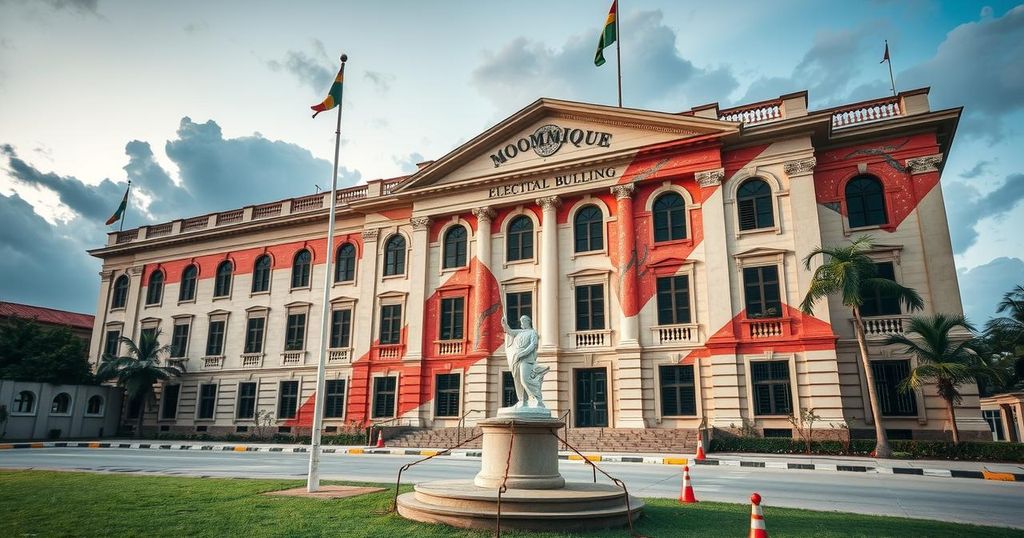Mozambique’s Constitutional Council Confirms Frelimo’s Election Victory Amidst Protests

Mozambique’s Constitutional Court has upheld the ruling Frelimo Party’s election victory, which occurred amid widespread allegations of electoral fraud and subsequent violent protests. Daniel Chapo won the presidency with 65.17% of the vote, while opposition leader Venâncio Mondlane garnered 24.29%. Despite accepting the presidency, Chapo acknowledges the need for electoral reforms, while protests against the results continue to escalate, raising concerns over human rights violations.
Mozambique’s Constitutional Council has confirmed the electoral victory of the ruling Frelimo Party and its presidential candidate, Daniel Chapo. Despite acknowledgment of electoral irregularities, the Council concluded that these did not significantly impact the election outcome, wherein Chapo secured 65.17% against opposition leader Venâncio Mondlane, who received 24.29%. Following the announcement, widespread protests erupted in Maputo, leading to further violence and additional fatalities. Chapo, in his acceptance speech, committed to reforming the democratic processes in Mozambique and serving all citizens while his opponents continued to contest the legitimacy of the election. Human rights organizations have raised alarms over violent crackdowns against protesters, further perpetuating unrest in the nation.
The political landscape in Mozambique is marked by a historical dominance of the Frelimo Party, which has been in power for nearly five decades. The recent elections, characterized by accusations of widespread electoral fraud, led to significant public outcry. The aftermath includes violent protests, with allegations of excessive force used by state security against demonstrators. The situation underscores the ongoing need for electoral reform and dialogue between warring political factions to foster national unity and stability.
The confirmation of Frelimo’s victory has ignited a wave of protests, reflecting deep societal divisions and dissatisfaction with the electoral process. The developments expose existing tensions within Mozambique’s political framework, emphasizing the urgent need for comprehensive electoral reforms as articulated by President-elect Chapo. Human rights concerns remain critical, as authorities must address public grievances to prevent further unrest and violence.
Original Source: www.voanews.com






